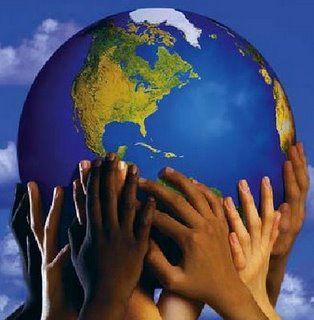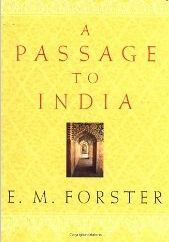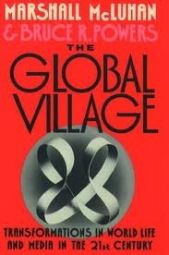
Publisher:
Bonnie King
CONTACT:
Newsroom@Salem-news.com
Advertising:
Adsales@Salem-news.com

~Truth~
~Justice~
~Peace~
TJP
Jun-19-2011 22:43

 TweetFollow @OregonNews
TweetFollow @OregonNews
Changing cultures
Dr. Paul Balles Salem-News.comLive in fragments no longer. Only connect! --E.M. Forster
 Image courtesy: idiotsandgenious.blogspot.com |
(BAHRAIN) - We're living in fragments.
It’s a smaller world with people further apart than ever.
We travel to different cultures; we fight other cultures. We want to control cultures we don't understand.
Different cultures think differently. If you believe that doesn't matter, try crossing a road in England or Australia if you come from America or the Middle East.
You’ll be looking left when you should be looking right as you begin to cross. If you automatically look in the wrong direction, you'll be lucky not to get run over.
If you speak English, you may look at and refer to a red house. If you speak Arabic, you'll refer to the same house as al beit hamar (the house red).
The linguistic differences reveal different perceptions: the English speaker perceives the colour first and then the house. The Arabic speaker sees the house first and then its colour.
 Click image to order from Amazon |
An excellent example of the challenges of different cultures can be found in E M Forster's famous novel A Passage to India.
We seek to impose our values and beliefs on others; and we fear the potential for others to impose their beliefs on us.
The youth look west and they want to wrest control from their elders. In these situations two cultures function within a larger culture.
It's a worldwide phenomenon. In Alvin Toffler's book Future Shock, the author looks at a world with "too much change in too short a period of time".
In Toffler's view change overwhelms people, leaving them disconnected and suffering from "shattering stress and disorientation" – future shocked.
The majority of social problems were symptoms of future shock according to Toffler. From his discussion of the components we also suffer from "information overload."
 Click image to order from Amazon |
Marshall McLuhan, author of The Global Village, devoted most of his career to the task of understanding the effects of technology related to popular culture, and how this in turn affected human beings and their relations with one another in communities.
Media and global village are both terms that McLuhan coined. He did this in the 1960s when television was still in its infancy, and the personal computer was almost twenty years into the future.
If McLuhan was right in saying that "the medium is the message", we are entering a period of immense culture shock.
Generations over 40 will find communicating with those under 25 almost impossible. Between 25 and 40 will depend on how much that age range have kept up with developments and have changed themselves.
Almost no one under 25 is reading the kinds of material that was the bulwark of their fathers. The young generation whose reading is influenced by the new age of twitter and Facebook haven't the time for the books their parents enjoyed.
They won't read long articles that the elder generations read. They will avoid reading anything they can find in shorter versions.
Just as the car extends our feet, its invention amputates muscles and clean air. The extension of social media amputates the ability to read and absorb much information.
With the radio and television we have simultaneous access to events on the entire planet. However, television culture diminishes, or amputates, many of the close ties of family life based on oral communication.
To avoid immense culture shock, think of social media and cell phone technology and ask several questions:
- What does the media and technology extend?
- What does it make obsolete?
- What is retrieved from the past (what is gained?)
- What happens if the technology is over-extended?
 Dr. Paul Balles has lived and worked in the Middle East for 40 years - first as an English professor (Universities of Kuwait and Bahrain), and for the past ten years as a writer, editor and editorial consultant. He's had more than 350 articles published, focusing on companies, personality profiles, entrpreneurs, women achievers, journalists and the media, the Middle East, American politics, the Internet and the Web, consumer reports, Arabs, diplomats, dining out and travel.
Dr. Paul Balles has lived and worked in the Middle East for 40 years - first as an English professor (Universities of Kuwait and Bahrain), and for the past ten years as a writer, editor and editorial consultant. He's had more than 350 articles published, focusing on companies, personality profiles, entrpreneurs, women achievers, journalists and the media, the Middle East, American politics, the Internet and the Web, consumer reports, Arabs, diplomats, dining out and travel.
He writes a weekly op-ed column for the Gulf Daily News (English) and Akbar Al Khaleej (Arabic). He has also edited seven websites, including bahrainthismonth.com, womenthismonth.com
Also see: Israel and US Apologists Rattled by UN Report on War Crimes in Gaza - By: Paul J. Balles
Articles for June 18, 2011 | Articles for June 19, 2011 | Articles for June 20, 2011
Salem-News.com:





Terms of Service | Privacy Policy
All comments and messages are approved by people and self promotional links or unacceptable comments are denied.
COLLI June 22, 2011 3:10 am (Pacific time)
Great piece - having just spent 3 days with my 17 year old granddaughter and her 17 year old gorlfriend, I witnessed exactly what you have written here. It was as if the cell phone was an extension of her arm. A simple conversation could not be completed without interruption. Lunch could not be eaten without interruption. Between voice mail and text messages, uninterrupted face to face conversation was almost non-existant. Setting time aside for human interaction is not something that the youth of today seem to comprehend. The computer and cell-phone are not viewed as tools, they are viewed as body-parts even more important than the brain.
[Return to Top]©2026 Salem-News.com. All opinions expressed in this article are those of the author and do not necessarily reflect those of Salem-News.com.